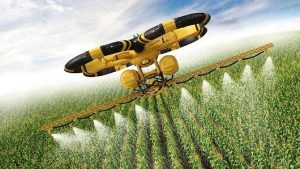
According to a Goldman Sachs research report, precision farming is estimated to be a $240 billion business by 2050. What is precision farming you may ask? It’s about replacing humans with technology, using driverless tractors, drones, and sensor tools to increase efficiency, optimization and spot problem crops faster.
Crop management is important for all farmers; however, with all this new technology, where is the wave of young farmers coming in to learn the basics to farming? I read that the average age of a farmer is 59 years old in the United States. Are farmers at this age willing to learn new tricks and tools of the trade? And what about the human aspect?
At least one of the data scientists in this video said drones help with data collection but we still need humans to make judgement calls on key decision making. In YouTube videos I tried to search for, nobody seems to want to discuss the affordability and operations and maintenance of the equipment.
John Deere producers and dealers seem to all agree the yield data collection is useful for financials and to know planning schedules and monitoring the water and nutrients, managing “down to the last acre” of what they can produce. One of the producers said he considers “precision farming” will just be known as “farming” in the future. What do you think? Is it an aid or a hindrance to job growth?